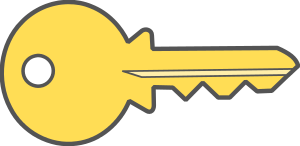Genetic Traits
Project #1346 on iSENSEProject.org
The following project contains data related to the number of students in a class that have either the dominant or recessive forms of 18 particular traits. The traits themselves are real traits known to be controlled by our genes. The forms are the scientifically determined dominant and recessive forms of these particular traits. I have been using this activity in my class for years and had at one time looked up the known forms online. I do not have a source for this information at this point in time.
Students individually/manually enter their own data for each trait. The students would pick the form of the trait that they exhibit from the drop down box for each trait and enter "1" for "How Many" people they represent. This allows the system to count the number of people with each of the forms of the different traits.
Students can analyze data from their class and, if more data is entered from other classes, they can compare the class data to this data as well. Students from each class should use a separate contributor key so that the data can be sorted by class or by multiple classes.
The project can be found at: http://isenseproject.org/projects/1346
Guiding Questions:
1. Look at the results of the survey for each trait separately using either a bar graph or a pie chart. Determine the top 3 traits that had the highest number of people in the class with the dominant form of the trait.
2. Using the same method(s), determine the top 3 traits that had the highest number of people with the recessive form of the trait.
3. Using the same method(s), which form of which trait had the highest number of people in the class exhibiting that form?
4. Were there any situations in which the dominant form was not the form that showed up the most often in the class? If yes, describe which trait(s) it was and how many people had each form of the trait(s). If so, why do you think this is?
| Name | Units | Type of Data |
|---|---|---|
|
Number
|
People
|
Number
|
|
Cloverleaf Tongue
|
|
Text
|
|
Color Blindness
|
|
Text
|
|
Handedness
|
|
Text
|
|
Chin Shape
|
|
Text
|
|
Hairline Shape
|
|
Text
|
|
Mid Digital Hair
|
|
Text
|
|
Length of 2nd Toe
|
|
Text
|
|
Hair Texture
|
|
Text
|
|
Pinky FInger Shape
|
|
Text
|
|
Tongue Curl
|
|
Text
|
|
Hair Color
|
|
Text
|
|
Eye Color
|
|
Text
|
|
Ear Lobe Position
|
|
Text
|
|
Thumb Shape
|
|
Text
|
|
Dimples
|
|
Text
|
|
Hand Fold
|
|
Text
|
|
Freckles
|
|
Text
|
|
Poison Ivy
|
|
Text
|
| Number | Cloverleaf Tongue | Color Blindness | Handedness | Chin Shape | Hairline Shape | Mid Digital Hair | Length of 2nd Toe | Hair Texture | Pinky FInger Shape | Tongue Curl | Hair Color | Eye Color | Ear Lobe Position | Thumb Shape | Dimples | Hand Fold | Freckles | Poison Ivy |
 kollmorgen
kollmorgen